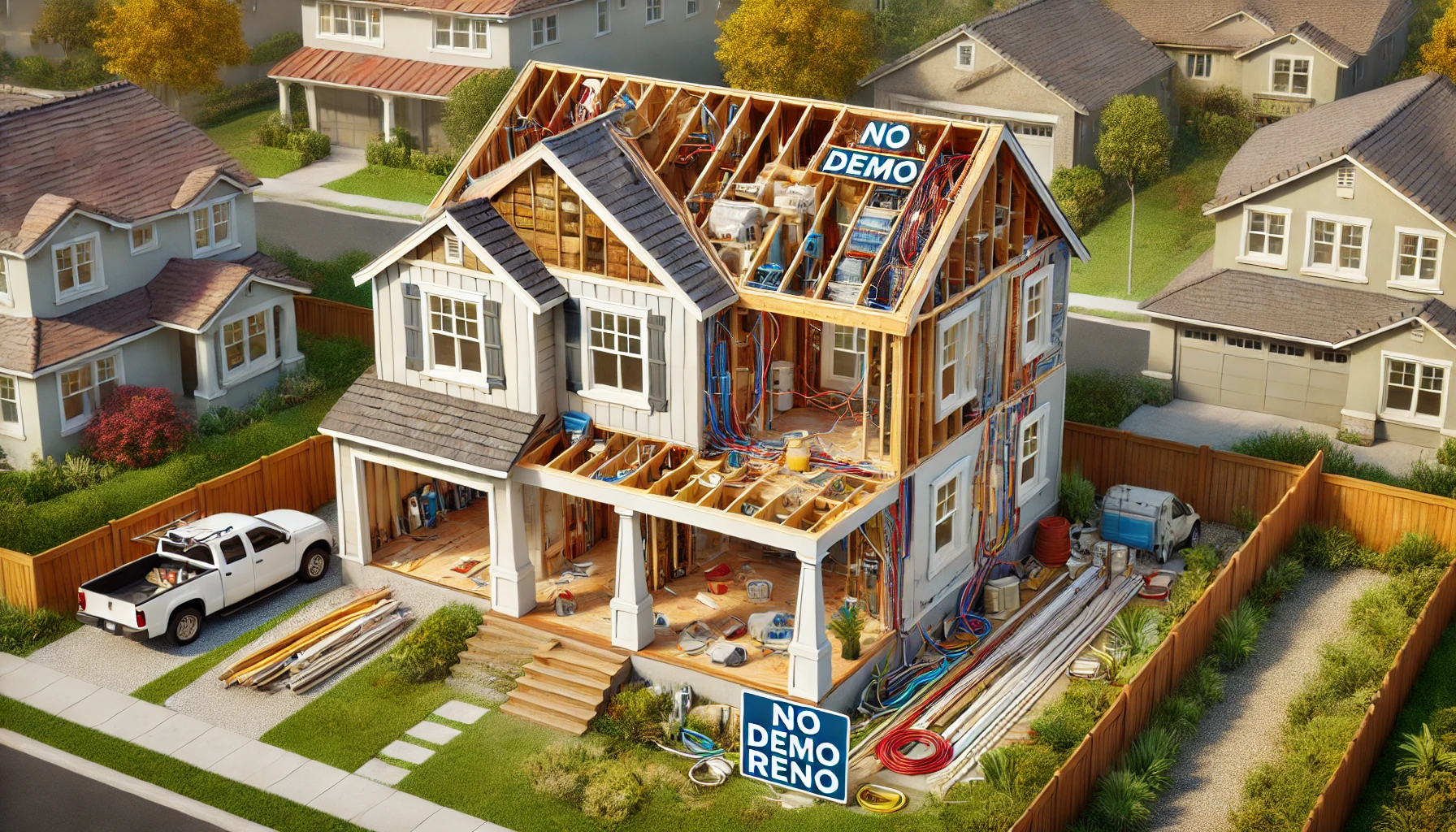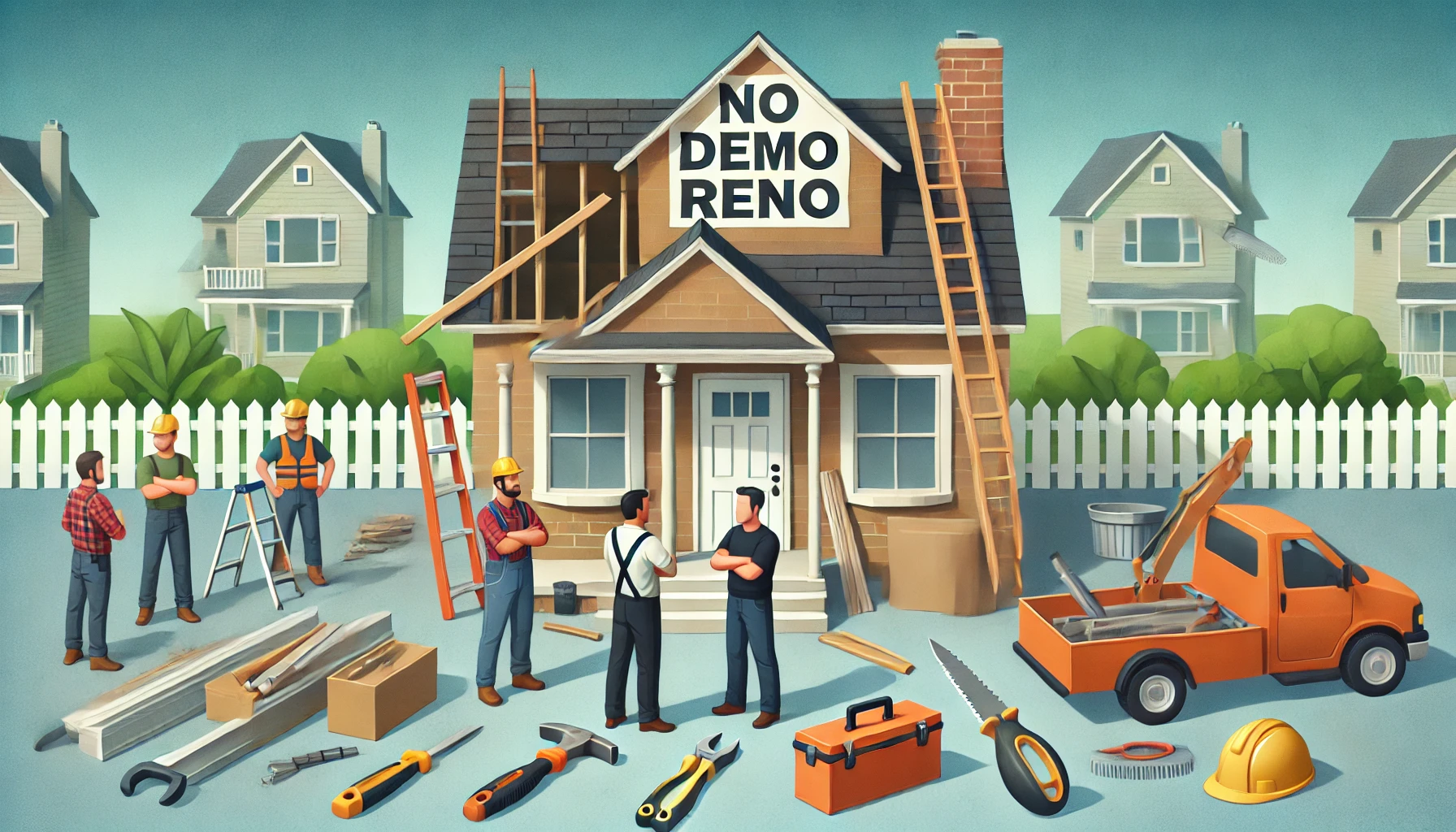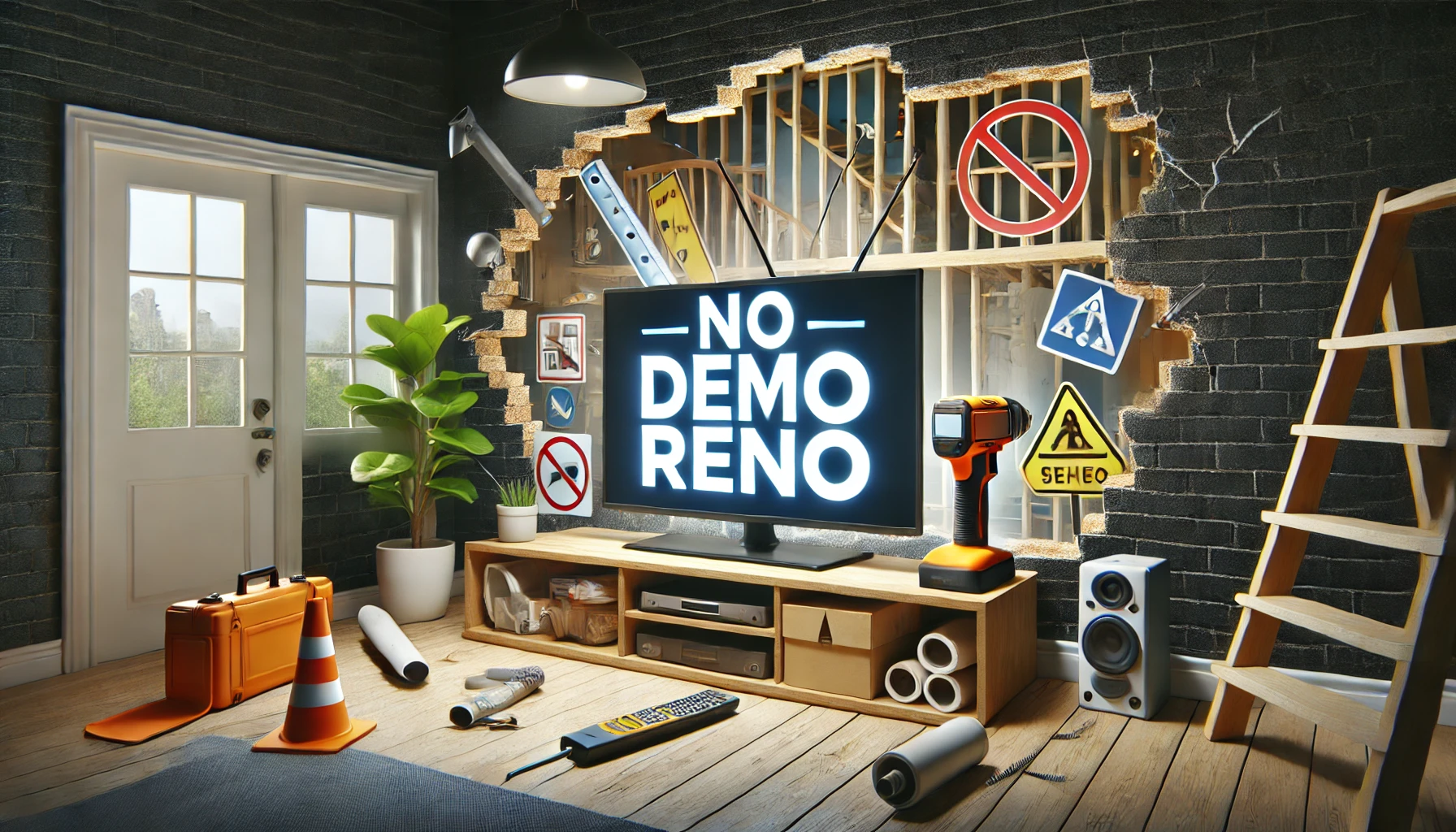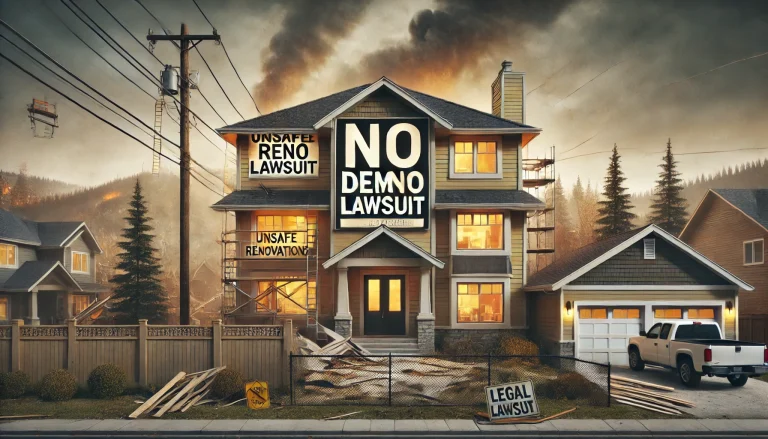No Demo Reno Lawsuit, an HGTV favorite, has captured audiences with its unique approach to home makeovers—transforming spaces without the mess of major demolitions. While the show’s innovative style is celebrated, it became embroiled in a legal dispute that raised questions about the quality and safety of its renovations. A Texas couple, Joe and Mandy Smith, filed a lawsuit against the show, alleging serious flaws in the work done on their home. This case highlights the complexities of mixing entertainment with real-life projects.
The No Demo Reno Lawsuit: What Homeowners Need to Know
The No Demo Reno lawsuit has drawn significant attention due to allegations of poor-quality renovations showcased on the popular HGTV show. Filed by a Texas couple, Joe and Mandy Smith, the lawsuit accuses the show and its contractors of delivering unsafe and substandard work during the remodeling of their home. This legal dispute has not only brought the couple’s concerns to light but has also raised questions about the accountability of home improvement programs.
The Smiths claimed that their renovated home was left with over 90 issues, including unsafe electrical wiring, improperly installed gas lines, and a dishwasher without a required air gap. These defects posed serious safety risks and caused financial strain, leading the couple to seek $1.477 million in damages. The amount covers repair costs, safety upgrades, and other related expenses.
HGTV responded by emphasizing that the homeowners independently work with contractors and that the network does not oversee these agreements. They encouraged both parties to resolve the dispute amicably while highlighting that participants typically sign non-disclosure agreements.
This case sheds light on the challenges faced by homeowners featured on renovation shows. It highlights the importance of thorough inspections, understanding contracts, and ensuring compliance with safety standards. For viewers and potential participants, the No Demo Reno lawsuit serves as a reminder to approach television renovations with caution and to prioritize quality and safety over dramatic transformations.
The Allegations in Detail
The Smiths listed more than 90 specific defects in their legal complaint, which they claimed were the result of negligent renovation practices. Some of the most critical issues included:
- Electrical Wiring: Improper and unsafe installations, increase the risk of electrical fires.
- Gas Line Problems: Poorly installed gas lines that posed potential hazards.
- Dishwasher Installation: A dishwasher was installed without an air gap, a necessary component to prevent contaminated water from backflowing into the appliance.
- General Safety Hazards: Structural issues and incomplete work that left the home unsafe for occupancy.
These problems not only compromised the home’s livability but also demanded significant financial resources to fix.
Financial and Legal Claims
The Smiths sought approximately $1.477 million in damages, covering:
- The cost of repairing defective work.
- Expenses related to ensuring the home met safety and regulatory standards.
- Compensation for the stress and disruption caused by the faulty renovations.
Their legal argument emphasized the responsibility of contractors and production teams in delivering quality work, even under the constraints of a television show’s schedule.
Response from HGTV
HGTV addressed the lawsuit by distancing itself from direct involvement in the renovations. The network clarified that homeowners work independently with contractors, and these agreements are not overseen by the show’s production team. They encouraged the homeowners and contractors to resolve the dispute amicably.
HGTV also pointed out that participants typically sign non-disclosure agreements, which limit their ability to speak publicly about any disputes or dissatisfaction. This policy is intended to protect the reputation of the show and the network, though it has raised concerns about transparency.
Broader Implications for Home Improvement Shows
The No Demo Reno lawsuit shines a light on the potential risks associated with home renovation shows. It raises important questions about how such programs balance entertainment with responsibility.
Impact on Homeowners
- Homeowners may be drawn to the excitement of a TV renovation but might not fully understand the risks involved.
- The fast-paced nature of TV productions can sometimes lead to rushed or incomplete work, leaving homeowners with unexpected problems.
Accountability in the Industry
- Should production teams take a more active role in supervising the quality of renovations?
- How can networks ensure that renovations comply with safety standards while maintaining tight production schedules?
Educating Viewers
- Many viewers may not realize that the timelines and budgets shown on TV are often unrealistic.
- This case emphasizes the need for viewers to approach TV renovations with a healthy dose of skepticism.
Lessons Learned
This lawsuit offers valuable lessons for various stakeholders:
For Homeowners
- Always inspect completed renovations carefully, especially when featured on TV.
- Ensure that contractors are licensed, insured, and experienced in their field.
- Understand all agreements before participating in a renovation show, including potential risks and limitations.
For Production Teams
- Implement stricter oversight to guarantee the safety and quality of work.
- Establish clear communication with participants about their roles and responsibilities.
- Take measures to ensure that renovations comply with local building codes.
For the Audience
- Recognize that TV shows often prioritize entertainment over practical concerns.
- Be cautious about mimicking renovation ideas from television without professional guidance.
Conclusion
The No Demo Reno lawsuit serves as a cautionary tale for homeowners, networks, and viewers alike. It highlights the importance of balancing creativity and entertainment with safety and quality. While TV renovations can inspire and excite, this case reminds us that real-world construction projects require careful planning, skilled professionals, and adherence to standards.
For homeowners considering appearing on renovation shows or undertaking similar projects, this lawsuit underscores the need for vigilance and informed decision-making. For HGTV and similar networks, it presents an opportunity to review and strengthen their processes, ensuring that entertainment does not come at the expense of safety or satisfaction. As the case unfolds, its impact on the home improvement industry will likely be significant, shaping practices for years to come.
FAQs About the No Demo Reno Lawsuit
Why did the homeowners file a lawsuit against No Demo Reno?
They claimed unsafe and substandard renovations, listing over 90 defects that required costly repairs.
What safety issues were highlighted in the lawsuit?
Key issues included unsafe electrical wiring, poorly installed gas lines, and a lack of proper dishwasher installation.
How much compensation did the homeowners seek?
The couple sought approximately $1.477 million to cover repair costs and related damages.
How did HGTV respond to the allegations?
HGTV clarified that contractor agreements were independent and encouraged resolving disputes directly with them.
What lessons does this lawsuit offer homeowners?
Homeowners should inspect work, verify contractor credentials, and fully understand agreements before joining TV shows.
Abilene Asbestos Legal Question: How to Identify, Handle, and Seek Justice for Asbestos Exposure
Vermont Mesothelioma Legal Question: How Vermont’s Statute of Limitations Impacts Your Case




